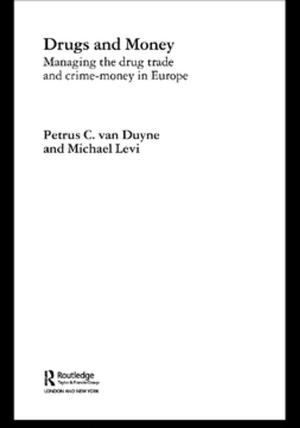What Is Curriculum Theory?
Nonfiction, Reference & Language, Education & Teaching, Educational Theory, Curricula, Aims & Objectives| Author: | William F. Pinar | ISBN: | 9781136860706 |
| Publisher: | Taylor and Francis | Publication: | March 22, 2012 |
| Imprint: | Routledge | Language: | English |
| Author: | William F. Pinar |
| ISBN: | 9781136860706 |
| Publisher: | Taylor and Francis |
| Publication: | March 22, 2012 |
| Imprint: | Routledge |
| Language: | English |
This primer for teachers (prospective and practicing) asks readers to question the historical present and their relation to it, and in so doing, to construct their own understandings of what it means to teach, to study, to become "educated" in the present moment.
Curriculum theory is the scholarly effort – inspired by theory in the humanities, arts and interpretive social sciences – to understand the curriculum, defined here as "complicated conversation." Rather than the formulation of objectives to be evaluated by (especially standardized) tests, curriculum is communication informed by academic knowledge, and it is characterized by educational experience. Pinar recasts school reform as school deform in which educational institutions devolve into cram schools preparing for standardized exams, and traces the history of this catastrophe starting in 1950s.
Changes in the Second Edition: Introduces Pinar’s formulation of allegories-of-the-present — a concept in which subjectivity, history, and society become articulated through the teacher’s participation in the complicated conversation that is the curriculum; features a new chapter on Weimar Germany (as an allegory of the present); includes new chapters on the future, and on the promises and risks of technology.
This primer for teachers (prospective and practicing) asks readers to question the historical present and their relation to it, and in so doing, to construct their own understandings of what it means to teach, to study, to become "educated" in the present moment.
Curriculum theory is the scholarly effort – inspired by theory in the humanities, arts and interpretive social sciences – to understand the curriculum, defined here as "complicated conversation." Rather than the formulation of objectives to be evaluated by (especially standardized) tests, curriculum is communication informed by academic knowledge, and it is characterized by educational experience. Pinar recasts school reform as school deform in which educational institutions devolve into cram schools preparing for standardized exams, and traces the history of this catastrophe starting in 1950s.
Changes in the Second Edition: Introduces Pinar’s formulation of allegories-of-the-present — a concept in which subjectivity, history, and society become articulated through the teacher’s participation in the complicated conversation that is the curriculum; features a new chapter on Weimar Germany (as an allegory of the present); includes new chapters on the future, and on the promises and risks of technology.















